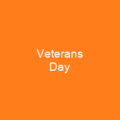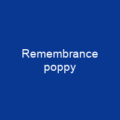Understanding Veterans: A Journey Through Experience and Honor
‘A veteran is a person with significant experience and expertise in an occupation or field.’ This simple definition encapsulates the essence of those who have served their countries, but it barely scratches the surface. What does it truly mean to be a veteran? Is it just about the years spent in uniform, or is there more to it?
The Transition from Service to Civilians
Once they leave active service, military veterans often find themselves navigating uncharted territories. The transition from the structured environment of the armed forces to civilian life can be daunting. Are these individuals simply ‘ex-military,’ or do they carry a unique set of skills and experiences that make them invaluable?
Health Concerns: A Hidden Battle
The health concerns faced by veterans after their service are often overlooked. Psychological issues such as Post-Traumatic Stress Disorder (PTSD) and substance abuse disorders can be debilitating, yet they receive less attention than physical injuries. How do these conditions affect a veteran’s life outside the battlefield?
Public Perception: A Double-Edged Sword
The public perception of veterans is complex. On one hand, they are often treated with respect and honor; on the other, there can be negative feelings towards those who served in unpopular conflicts. How does this vary across different countries? Are there specific traditions or ceremonies that help bridge these gaps?
Global Perspectives: A Tale of Many Veterans
Veterans’ experiences around the world are as diverse as their backgrounds. In some places, they receive generous compensation and support; in others, they face significant challenges. For instance, veterans from World War II in Congo-Kinshasa still live without pensions, while the United Kingdom’s King’s National Roll Scheme provided innovative employment for disabled veterans.
Challenges Faced by Modern Veterans
The challenges faced by modern veterans are unique. Those who served in operations like Enduring Freedom and Iraqi Freedom often return with severe injuries, both physical and mental. The rise of traumatic brain injury (TBI) among women veterans adds another layer to the complexity of their needs.
Health Risks: A Growing Concern
The health risks faced by veterans are alarming. Suicide rates among younger veterans are particularly concerning, and PTSD affects a significant number of them. New treatment programs like Cognitive Behavioral Therapy (CBT) offer hope, but the journey to recovery is often long and arduous.
Homelessness: A Hidden Crisis
Homelessness among veterans is a stark reality that cannot be ignored. With an estimated 57,849 homeless veterans in the US as of January 2013, this issue highlights the need for comprehensive support systems. Are we doing enough to ensure these heroes have a place to call home?
Support and Advocacy: A Call to Action
The Department of Veterans Affairs (VA) plays a crucial role in providing medical benefits, but there is still much work to be done. Independent charities and government-backed services offer vital support, but more can be done to address the unique needs of veterans.
Conclusion: A Call for Recognition and Support
Veterans are not just a part of our history; they are an integral part of our present. Their service has shaped nations and communities, yet their struggles often go unnoticed. As we honor them on special days and in ceremonies, let us also commit to supporting them every day. After all, isn’t that what being a veteran truly means?

You want to know more about Veteran?
This page is based on the article Veteran published in Wikipedia (retrieved on March 6, 2025) and was automatically summarized using artificial intelligence.







